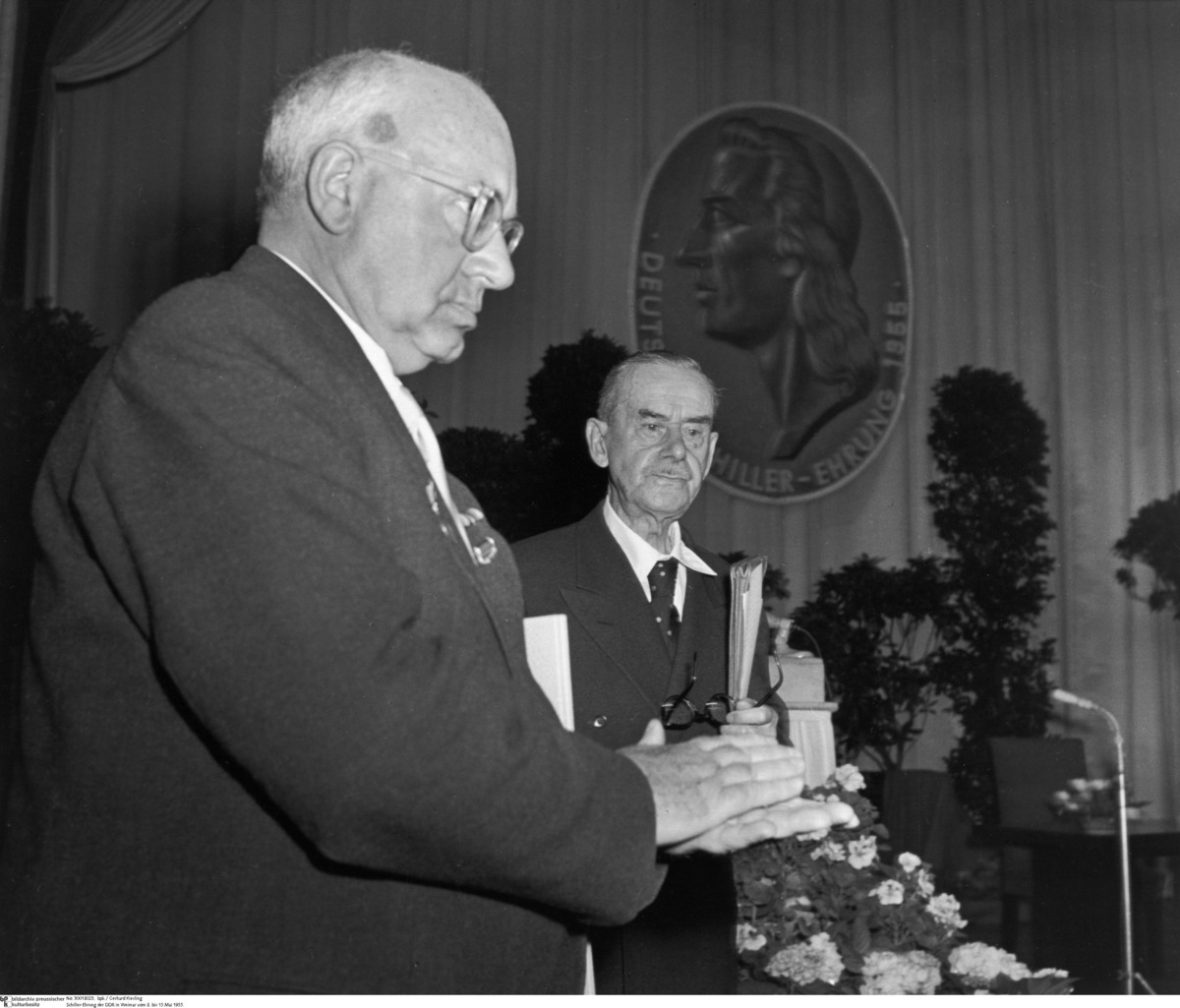Source

Source: Photo: Gerhard Kiesling.
bpk-Bildagentur, image number
30018023. For rights inquiries, please contact Art Resource at
requests@artres.com (North America) or bpk-Bildagentur at
kontakt@bpk-bildagentur.de (for all other countries).
In order to create cultural legitimacy for SED rule, the party leaders in the Soviet occupation zone borrowed ideas from Marxist literary theorist George Lukacs, who interpreted Goethe as the “champion of the advancement of humanity” and called upon Communists to embrace the cultural legacy of Classicism. Furthermore, Lukacs described Thomas Mann – the most important German author at the time – as Goethe’s successor. On the occasion of the 200th anniversary of Goethe’s birth, Thomas Mann was invited to Weimar in East Germany and Frankfurt am Main in the West. The author, who had not abandoned the idea of a unified German cultural community, traveled to both cities – and was sharply criticized for his trip in the West. In fact, his visit to East Germany was of great propagandistic value to the Communists since in their view (following Lukacs’s interpretation) Mann represented the link between Weimar Classicism and the Communist regime in the Soviet occupation zone. Although Mann turned down the National Prize and other awards from the SED, he did accept an invitation to visit both Stuttgart and Weimar to celebrate the 150th anniversary of Schiller’s death. Even during the Cold War, Mann rejected claims by either side that they were the exclusive representatives of German culture. This photo was taken at the Schiller celebration in Weimar on May 14, 1955. GDR Secretary of Culture Johannes R. Becher (left) welcomes Thomas Mann in the National Theater.

Source: Photo: Gerhard Kiesling.
bpk-Bildagentur, image number
30018023. For rights inquiries, please contact Art Resource at
requests@artres.com (North America) or bpk-Bildagentur at
kontakt@bpk-bildagentur.de (for all other countries).
© bpk / Gerhard Kiesling